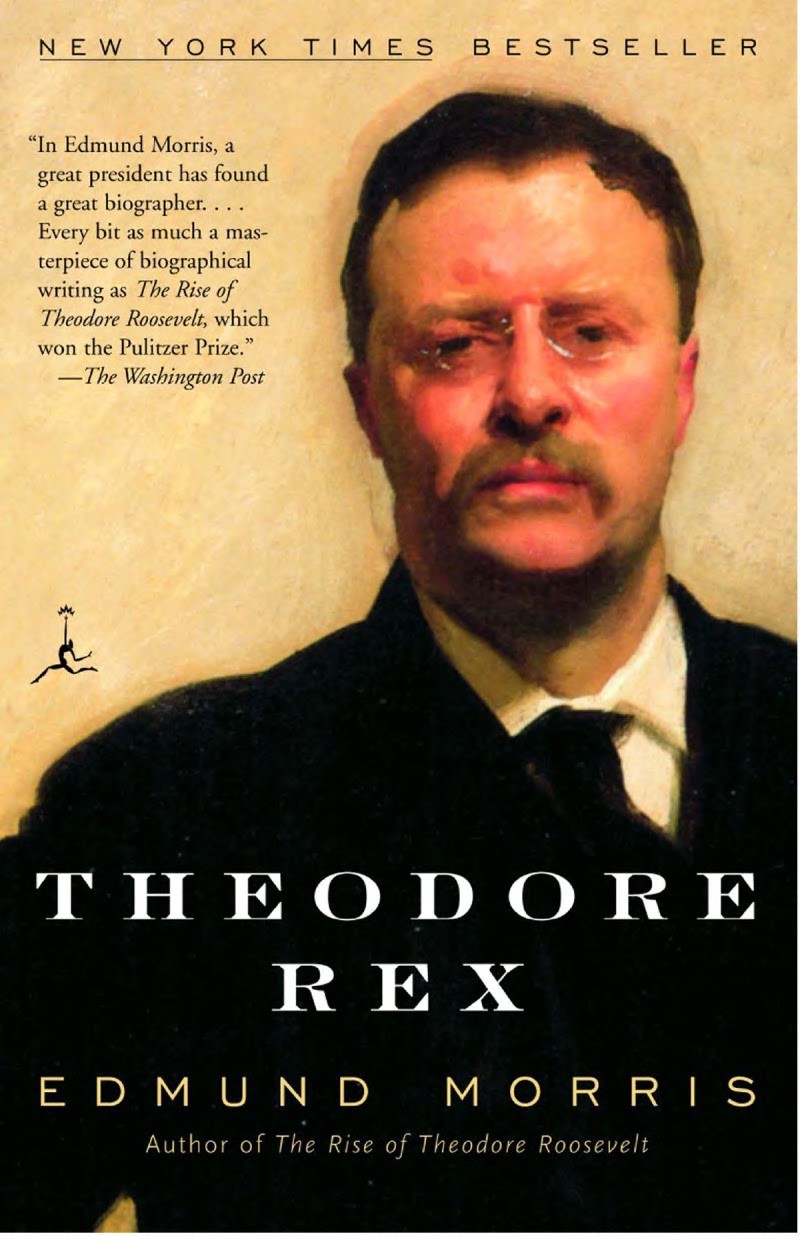
Theodore Rex
کتاب های مرتبط
- اطلاعات
- نقد و بررسی
- دیدگاه کاربران
نقد و بررسی

Starred review from October 15, 2001
The second entry in Morris's projected three-volume life of Theodore Roosevelt focuses on the presidential years 1901 through early 1909. Impeccably researched and beautifully composed, Morris's book provides what is arguably the best consideration of Roosevelt's presidency ever penned. Making good use of TR's private and presidential papers—as well as the archives of such protégés as John Hay, William Howard Taft, Owen Wister and John Burroughs—Morris marshals a rich array of carefully chosen and beautifully rendered vignettes to create a dazzling portrait of the man (the youngest ever to hold the office of president). Morris proves the perfect guide through TR's eight breathless, fertile years in the White House: years during which the doting father and prolific author conserved millions of Western acres, swung his "big stick" at trusts and monopolies, advanced progressive agendas on race and labor relations, fostered a revolution in Panama (where he sought to build his canal), won the Nobel Peace Prize for mediating an end to the Russo-Japanese War and pushed through the Pure Food and Drug Act. John Burroughs once wrote that the hypercreative TR "was a many sided man, and every side was like an electric battery." In the end, Morris succeeds brilliantly at capturing all of TR's many energized sides, producing a book that is every bit as complex, engaging and invigorating as the vibrant president it depicts. Illus. (On-sale: Nov. 20)Forecast:Long-awaited, this volume comes out in the centennial of TR's rise to the presidency. Morris's gift for storytelling and his outstanding reputation from volume one (and perhaps his notoriety for the controversial Reagan bio
Dutch) should guarantee large sales.

November 1, 2002
When Vice President Theodore Roosevelt succeeded the assassinated William McKinley, his conservative critics feared a precipitous presidency. But as shown by Morris's second volume on the "Bully" president, what emerged instead was a balanced leader who deserves being ranked among America's top five chief executives. There was universal praise for The Rise of Theodore Roosevelt, the first volume of Morris's TR biography, which claimed both the Pulitzer Prize and the American Book Award in 1980. After his controversial Dutch: A Biography of Ronald Reagan, Morris returns to TR and his traditional acclaimed method, which is stylistically eloquent and historically balanced. Morris shows how Roosevelt adapted Abraham Lincoln's wartime presidency as his own model for transforming America's domestic and international agendas. His two major miscalculations were his premature announcement declining a second complete term and the handling of the Brownsville Affair, when he gave dishonorable discharges to all 167 men from three black companies stationed near Brownsville, TX, when they refused to identify 12 members who had retaliated against discriminatory practices in the town. Morris excels at placing TR in the context of his time, showing how he outmaneuvered powerful but ossified opponents from the Gilded Age and trumped isolationists by averting war, in the process winning the first Nobel Peace Prize. He also set the standard for the Hyde Park Roosevelts, whose emulation of his "accidental" presidency a generation later was perhaps his ultimate contribution to democracy. Essential for all libraries.-William D. Pederson, Louisiana State Univ., Shreveport
Copyright 2002 Library Journal, LLC Used with permission.

October 1, 2001
By constitutional dictate, Vice-President Theodore Roosevelt assumed the mantle of the presidency when, on September 14, 1901, William McKinley succumbed to an assassin's bullet. At age 42, TR was the youngest man to become chief executive, and his succession to the highest office in the land was not universally applauded. Senator Mark Hanna, the late president McKinley's friend and mentor, did not just speak for himself when he wailed, "Now look--that damned cowboy is president of the United States." Morris, author of the controversial " Dutch: A Memoir of "Ronald Reagan (1999), now writes the sequel to his award-winning " The Rise of the Theodore Roosevelt" (1979). And just as TR required a large stage to accommodate his personality and talents--only the presidency would do--the proper telling of his story requires many pages. The reader experiences joy along with the president as he takes hold of the reins of government and, not content with simply being a politician and chief administrator, struggles "toward statesmanship." Roosevelt brought freshness and energy to his handling of the important issues of the day, which for him meant busting trusts, pushing conservation, building the Panama Canal, and effecting a naval buildup. He ended his presidency pleased with his performance and accomplishments, and the reader will end this engrossing narrative pleased that Morris has finally written the second half of this impressive biography.(Reprinted with permission of Booklist, copyright 2001, American Library Association.)

























دیدگاه کاربران